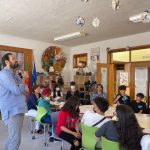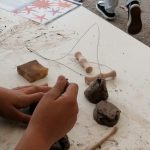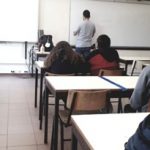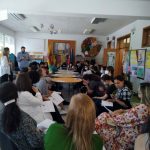It is important to implement this pilot because…
the school environment is a fundamental integrative social context, and it is our belief that it is important to involve the host community in the integrative processes of migrants. The mentoring program relies on a participative methodology, in which school relevant actors (as teachers, parents’ associations and, mainly, pupils) will be involved in planning processes (e.g. peer mentoring relationships between Portuguese and migrant youngsters) and activities (collective events, training activities) that turn easier migrant pupils’ integrative process.
Pilot: Mentorship for a better integration
The aim of this pilot action is…
to directly respond to refugee and migrant youngsters’ needs regarding the lack of integration in the school environment, and simultaneously, will raise awareness on school actors about their role and responsibility for contributing to migrant pupils’ integration in the school. The aim of this program is to create a social and emotional support network for these migrants in the school environment, ruled by the respect of some relevant values – democracy, solidarity, freedom, – that guarantees the development of migrants’ autonomy, trust in the school institution and wellbeing, and the support for intercultural exchange.
First testing of the pilot in
![]()
Portugal
Second testing of the pilot in
![]()
Poland

Throughout the pilot action, both migrant and non-migrant young people, as well as parents’ associations and teachers will participate in the planning of activities and will be encouraged to reflect on their role in the migrants’ integration process. Training sessions and reflexive meetings will contribute to developing these actors’ social and civic responsibility, empathy skills and adherence to multicultural values. The methodology of this program predicts that these school actors will gain more and more autonomy throughout the program, being able to perpetuate its existence in the future (sustainability of the program).
This pilot will contribute to address some or all of the following objectives:
- To create an environment where migrant young people can be welcomed and feel secure to express themselves.
- To promote school environments and involve all the school community in the integration process of migrant pupils.
- To raise awareness in the local institutions (namely schools) about their responsibility in actively contributing to the integrative process of migrant pupils.
- To promote institutions’ autonomy to continue with this program in the future.




